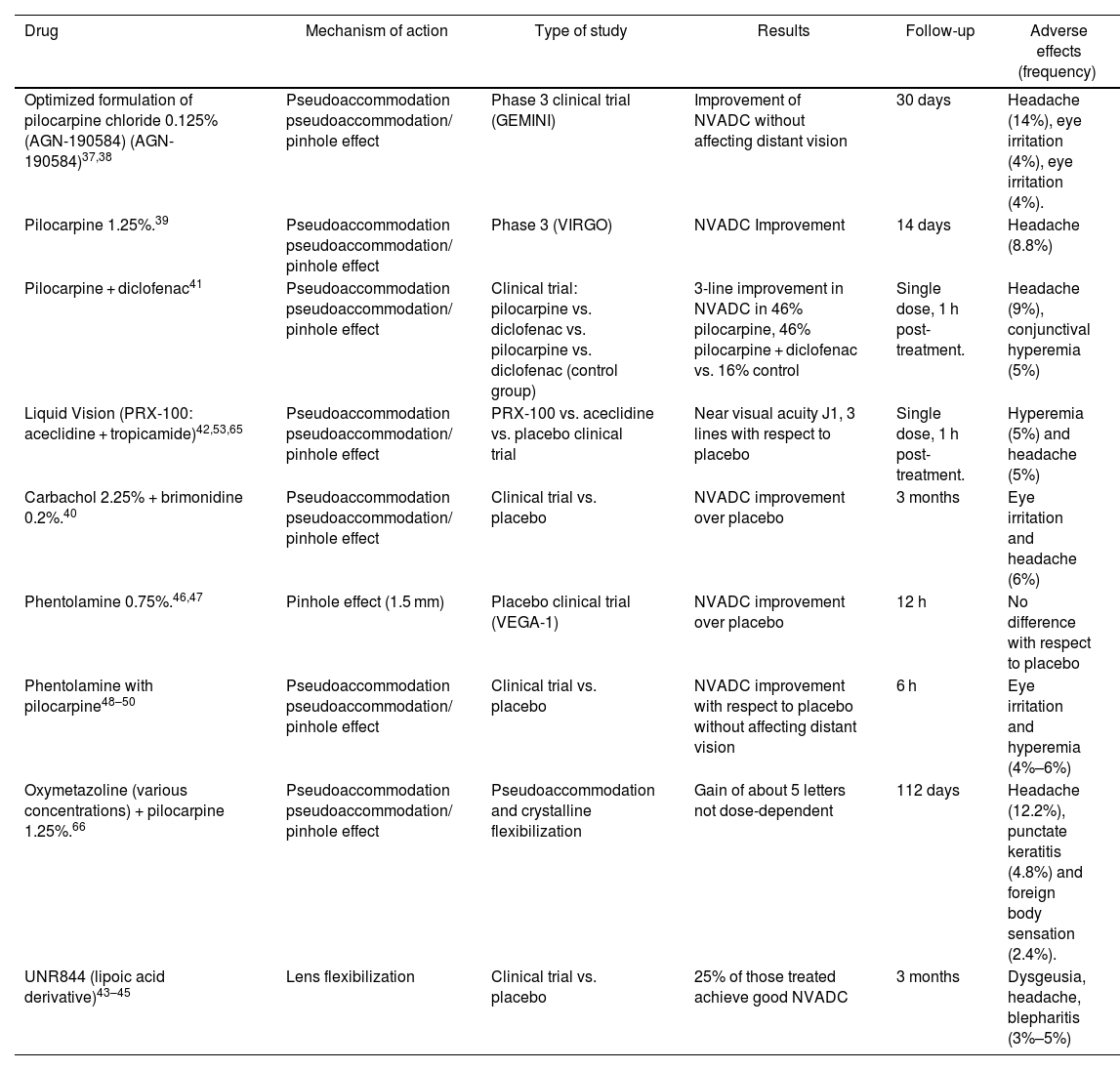Presbyopia affects between 1.7 and 2 billion people worldwide. Presbyopia significantly impacts productivity and quality of life in both developed and developing countries. During accommodation, the human eye changes its dioptric power by altering the shape of the lens, but the exact nature of this change has not been fully explained. Recently, topical treatments have been marketed for the treatment of presbyopia and others are under investigation.
In order to prepare a review of these novel therapies, we searched the major biomedical search engines. We found 15 randomized clinical trials and 12 reviews that met our review criteria. There are two different strategies for this purpose, the pinhole effect that increases depth of focus and “crystalline lens relaxation” for which parasympathetic mimetics and lens oxidation intermediates have been used. The results are generally favorable in terms of improvement of near visual acuity, although the follow-up period of the studies is short. These are novel strategies in the early stages of research that could be useful in the treatment of presbyopia.
La presbicia afecta entre 1700 y 2000 millones de personas en todo el mundo. La presbicia impacta significativamente la productividad y la calidad de vida tanto en países desarrollados como en vías de desarrollo. Durante la acomodación, el ojo humano cambia su potencia dióptrica alterando la forma del cristalino, pero la naturaleza exacta de este cambio no ha sido completamente explicada. Recientemente han sido comercializados tratamientos tópicos para el tratamiento de la presbicia y existen otros en investigación.
Con el objetivo de elaborar una revisión sobre estas terapias novedosas se realizó una búsqueda en los principales buscadores biomédicos. Se encontraron 15 ensayos clínicos aleatorizados y 12 revisiones que cumplían nuestros criterios de revisión. Existen dos estrategias diferentes con este fin, el efecto estenopeico que aumenta la profundidad de foco y la «flexibilización cristaliniana» para lo cual se han empleado parasimpático miméticos e intermediarios de la oxidación del cristalino. Los resultados son en general favorables en cuanto a la mejoría de la agudeza visual cercana, si bien el periodo de seguimiento de los estudios es corto. Se trata de estrategias novedosas en fases iniciales de investigación que podrían tener su utilidad para el tratamiento de la presbicia.







